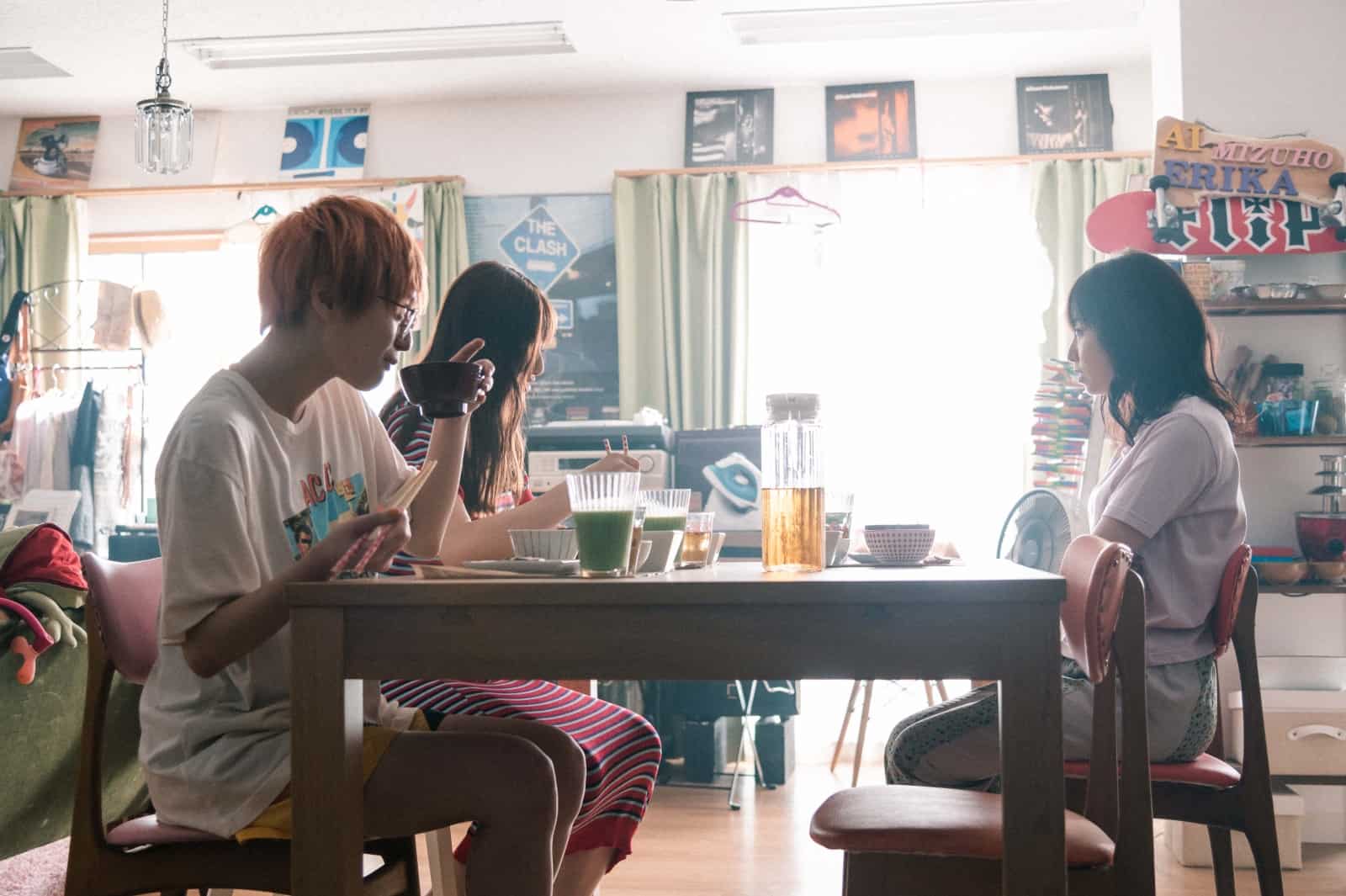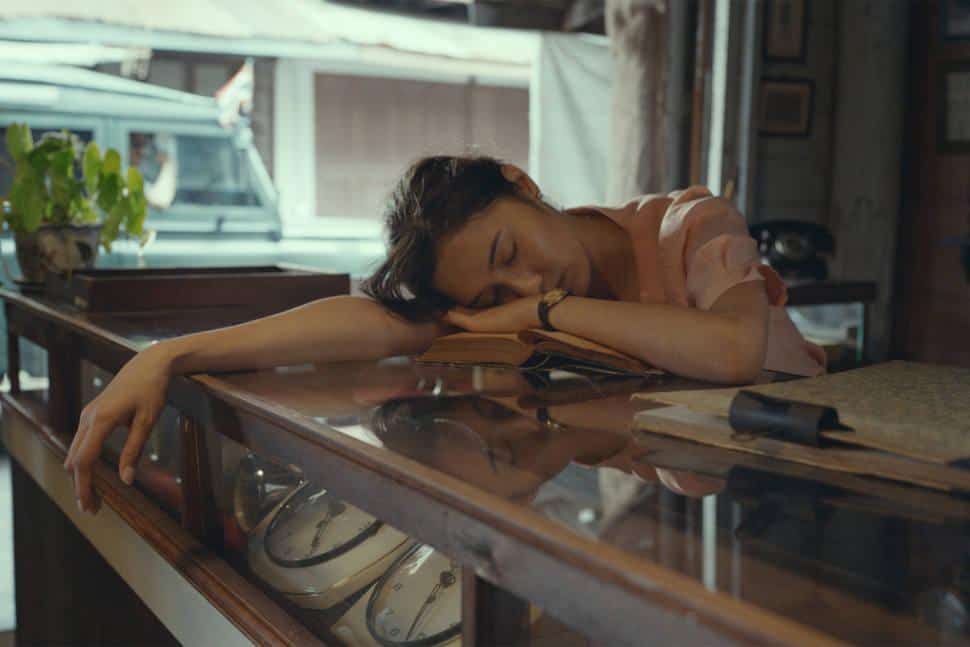The fourth and most commercial film by Kenichi Ugana, “Rolling Marbles” was released as the 15th anniversary movie of the famous NYLON JAPAN, a magazine devoted to “pop, rock and alternative girls!”, and has already been selected to screen at Cinequest Film Festival.
The story takes place in Tokyo, where three girls in their 20s are sharing an apartment on the edge of Shibuya, which is, though, about to get demolished due to the continuous redevelopment of the area. Ai is working part-time at a hotel but strives to become a model; however, she is repeatedly pinned down by people of fashion, who tell her that she needs to lose even more weight and that she has to change her attitude during photo shoots. Her meeting with a famous model, nervtheless, gives her hope. Erika wants to become a folk singer and spends many of her afternoons singing with her guitar on the street, usually for the same man, whose is frequently her only audience. However, she also struggles to come up with a hit song. Mizuho is working for the editorial department of a magazine, and in a night club. She also smokes, drinks, sees a man who has a girlfriend, and occasionally indulges in one night stands, in an attitude the other two do not appreciate in particular, although their relationship is quite harmonic. The three girls live their lives in a seemingly happy-go-lucky fashion, but eventually reality, and life itself, comes crashing.
Kenichi Ugana directs a film about the difficulties youth and particularly women have to face in the ever-changing, contemporary setting of the Tokyo megalopolis, regarding both their professional lives and their social ones.
At the same time, and through each individual girl, Ugana comments on a certain industry, mostly through a rather pessimistic but also realistic approach. In that regard, Ai is the “medium” of commenting on the fashion industry, the ever-present pursue of being as thin as possible, and the fact that friendship is not exactly the norm in such a competitive field. Ai Yoshikawa does a very convincing job in the part, highlighting her struggle and the shock she experiences when faced with reality artfully, with the build-up towards her inevitable break-down being the best part of her acting. The fact that she also looks like a model definitely helps.
Erika's life functions as a comment on the music industry, although in a more indirect way, as the film shows how difficult it is to even being acknowledged, with the girl having to perform on the street, just to begin from somewhere. Yui is a musician and a former member of an idol group (Keyakizaka 46) and thus is able to bring a sense of realism in the role, although her part is the smallest in the film.
Mizuho on the other hand, seems to represent everyone other demographic, as a girl who is truly lost, not sure what she wants from life, and the toll this concept is taking both in her professional and her personal life. The fact that she tries to mask an emotional state the is pretty close to depression under the “persona” of the party girl is excellently portrayed by Minori Hagiwara, with her anchoring the film in the best way.
On the other hand, I felt that the past of the girls and how they ended up together could have been explored a bit more, something that would definitely benefit the analysis of their characters.

At the same time, the combined lives of all three also present a comment about both the reasons people want to come to Tokyo and how difficult it is to make it there. Furthermore, and in a narrative that could have been quite dramatic, Ugana also presents the value of friendship and the way relationships, like the one the three girls have, can provide solace at all times. Lastly, the way the apartment that is about to be demolished creates a parallel with their lives, is one of the best parts of Ugana's direction.
The second aspect, and the overall audiovisual approach Ugana implements, do not allow the movie to become overly dramatic, despite the main premises of the narrative. The rather polished, filled with colors cinematography of Koichi Furuya is the main medium of this approach, as his aesthetics occasionally borders on the TV commercial, in a way though, that does not fault the film. The work done by the stylist Yoshie Ogasawara on the clothes and accessories the girls wear (Mizuho's safety-pin necklace will definitely stay on mind) and of Rumi Terasawa in hair and makeup (again Mizuho stands out here) also moves in that direction (and probably the style of NYLON magazine). Lastly, Satoru Yokohari's production design, and particularly the apartment and the club, cement this approach. Masashi Komino's editing combines the three different arcs nicely, through a relative fast pace that suits both the narrative and the rhythms of the city.
“Rolling Marbles” occasionally seems “too light” for its main theme, but in the end, emerges as a rather entertaining movie that communicates its comments thoroughly while benefiting from the charisma and the chemistry of its protagonists.














